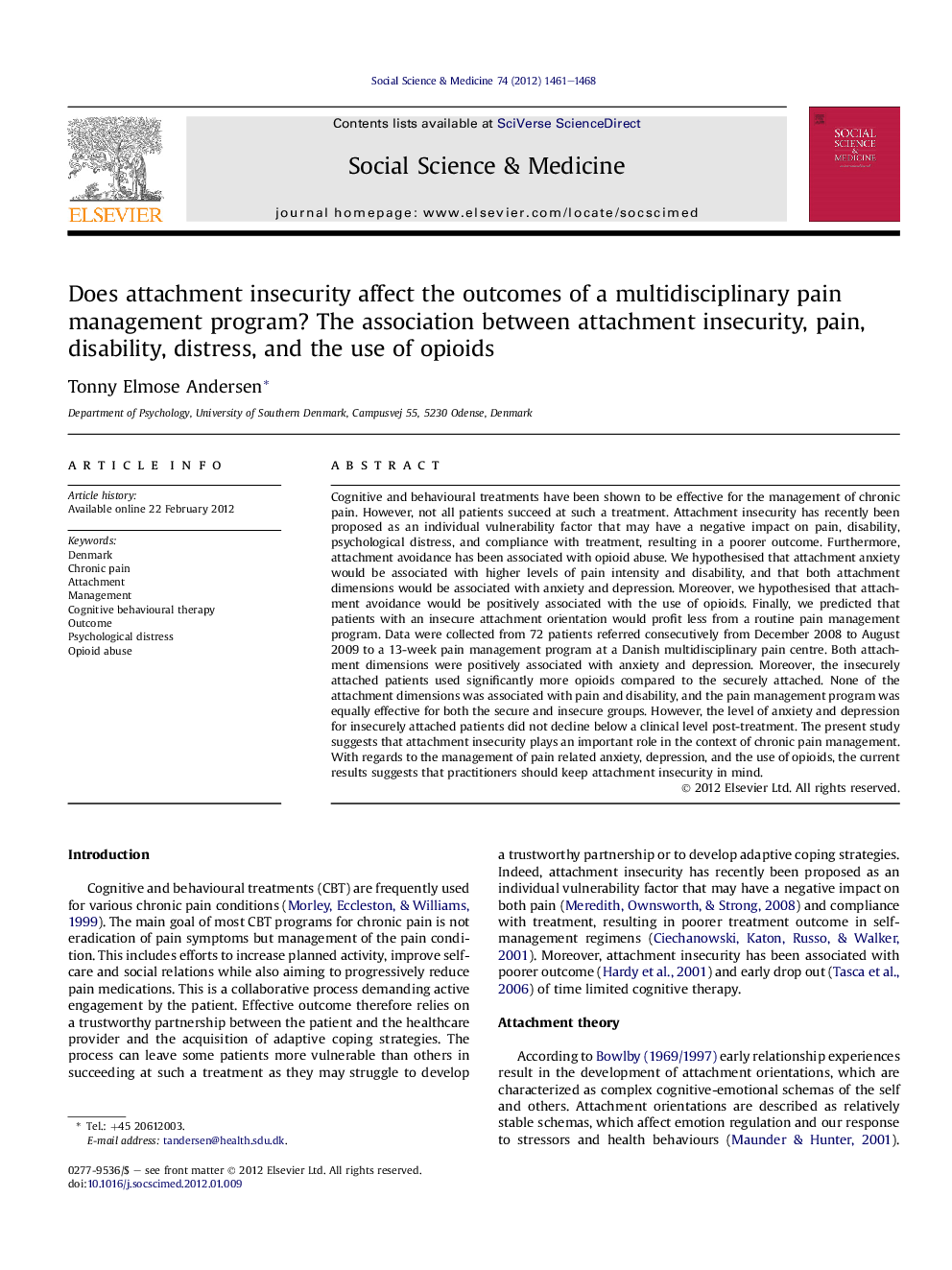| کد مقاله | کد نشریه | سال انتشار | مقاله انگلیسی | نسخه تمام متن |
|---|---|---|---|---|
| 952510 | 927518 | 2012 | 8 صفحه PDF | دانلود رایگان |

Cognitive and behavioural treatments have been shown to be effective for the management of chronic pain. However, not all patients succeed at such a treatment. Attachment insecurity has recently been proposed as an individual vulnerability factor that may have a negative impact on pain, disability, psychological distress, and compliance with treatment, resulting in a poorer outcome. Furthermore, attachment avoidance has been associated with opioid abuse. We hypothesised that attachment anxiety would be associated with higher levels of pain intensity and disability, and that both attachment dimensions would be associated with anxiety and depression. Moreover, we hypothesised that attachment avoidance would be positively associated with the use of opioids. Finally, we predicted that patients with an insecure attachment orientation would profit less from a routine pain management program. Data were collected from 72 patients referred consecutively from December 2008 to August 2009 to a 13-week pain management program at a Danish multidisciplinary pain centre. Both attachment dimensions were positively associated with anxiety and depression. Moreover, the insecurely attached patients used significantly more opioids compared to the securely attached. None of the attachment dimensions was associated with pain and disability, and the pain management program was equally effective for both the secure and insecure groups. However, the level of anxiety and depression for insecurely attached patients did not decline below a clinical level post-treatment. The present study suggests that attachment insecurity plays an important role in the context of chronic pain management. With regards to the management of pain related anxiety, depression, and the use of opioids, the current results suggests that practitioners should keep attachment insecurity in mind.
► Attachment insecurity was a vulnerability factor in the context of chronic pain management.
► Insecurely attached patients used more morphine (mg/day) compared to their securely attached counterparts.
► Insecurely attached patients were more anxious and depressed both at pre-treatment and post-treatment, compared to their securely attached counterparts.
Journal: Social Science & Medicine - Volume 74, Issue 9, May 2012, Pages 1461–1468